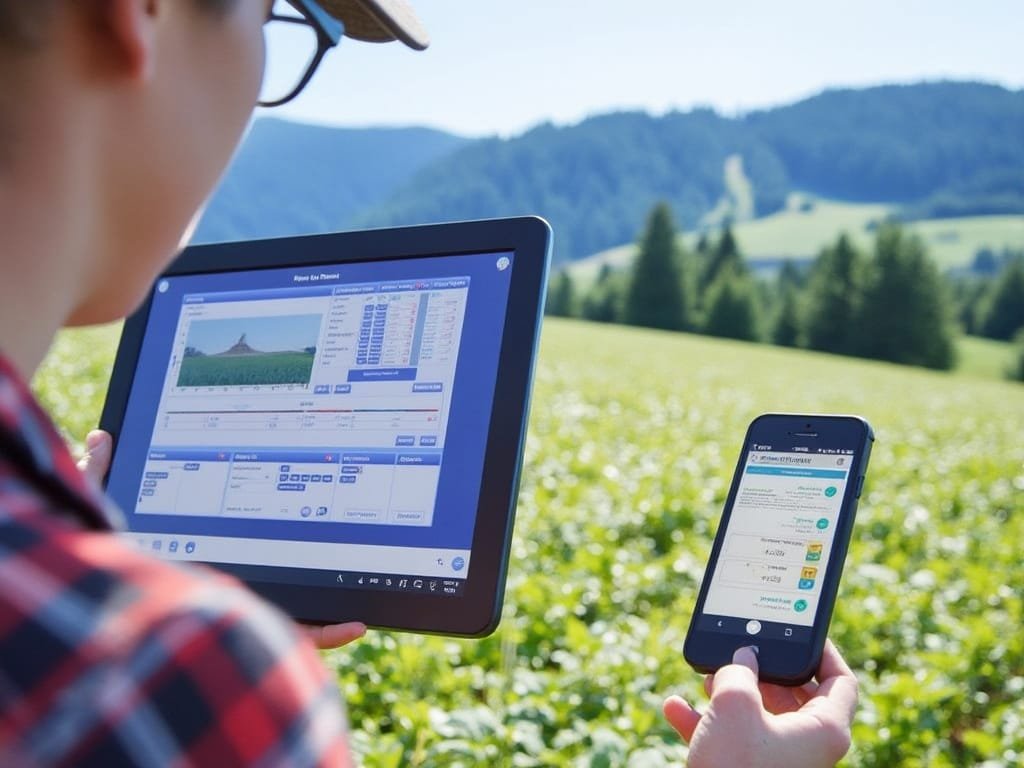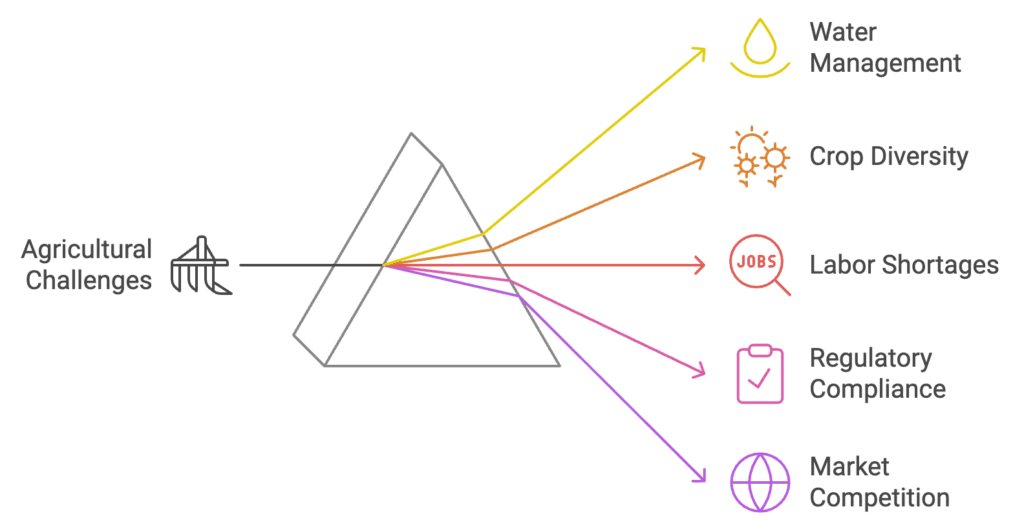
Introduction
The Columbia Basin, spanning parts of Washington, Oregon, and Idaho, is a vital agricultural region in the United States. Known for its rich volcanic soil and extensive irrigation systems, the basin supports a diverse range of crops, including potatoes, apples, wheat, and wine grapes. However, farmers in this region face unique challenges that require innovative solutions to maintain and improve efficiency. Implementing Agricultural ERP (Enterprise Resource Planning) systems has emerged as a powerful strategy to address these challenges.
This comprehensive article explores how Agricultural ERP can increase efficiency on farms in the Columbia Basin. We will delve into the specific challenges faced by farmers, the benefits of ERP implementation, and how these solutions interconnect with advancements in other major farming regions across the United States.
Challenges in the Columbia Basin Agriculture
Farmers in the Columbia Basin contend with several obstacles:

The Role of Agricultural ERP in Enhancing Efficiency
Implementing an Agricultural ERP system can address these challenges by integrating all facets of farm operations into a unified platform. Key areas where ERP systems enhance efficiency include:
Connection with Other Regions: Efficient water management is also crucial in California’s Central Valley, where farmers face frequent droughts. The strategies employed there can provide valuable insights for Columbia Basin farmers.
Connection with Other Regions: Managing diverse crops is a common challenge in the Pacific Northwest’s Agriculture Hub, where ERP systems have been instrumental in maximizing yields.
Connection with Other Regions: Labor management improvements are also seen in the Corn Belt, where large-scale operations require efficient workforce coordination.
Connection with Other Regions: The focus on sustainability is shared with the Mississippi Delta Region, where ERP systems support environmentally friendly practices.
Connection with Other Regions: Similar supply chain enhancements are evident in Florida's Citrus Groves, where timely delivery of fresh produce is crucial.
Case Studies: ERP Implementation in the Columbia Basin
A large potato farm in the Columbia Basin faced challenges in coordinating planting schedules, irrigation, and harvesting across thousands of acres. By implementing an ERP system, they achieved:
Connection with Other Regions: The success mirrors efficiency gains in the Corn Belt, where similar strategies have boosted corn and soybean production.
A vineyard sought to improve quality and consistency in their wine grapes. ERP implementation led to:
Connection with Other Regions: This aligns with advancements in California’s Napa Valley, where ERP systems have tailored solutions for vineyards and orchards.
Technological Integration
ERP systems in the Columbia Basin often integrate with advanced technologies:
Connection with Other Regions: The use of technology is a common theme across regions, such as the Southern Plains, where cotton farmers leverage ERP-integrated technologies.
Benefits of ERP Implementation
The adoption of Agricultural ERP systems brings several benefits:
Interconnected Agricultural Advancements
The Columbia Basin is part of a broader national movement towards technological integration in agriculture. The experiences and lessons learned here are valuable for farmers in other regions, and vice versa.
Challenges in ERP Adoption
While the benefits are substantial, farmers may face hurdles in adopting ERP systems:
Strategies for Successful ERP Implementation
To maximize the benefits, farmers should consider:
Future Outlook
The future of agriculture in the Columbia Basin looks promising with the continued integration of ERP systems. Emerging trends include:
last but not least
Increasing efficiency on farms in the Columbia Basin with Agricultural ERP systems is not just a theoretical concept but a practical, proven strategy. By addressing the unique challenges of the region, ERP implementation in agriculture leads to significant improvements in productivity, sustainability, and profitability.
The interconnected experiences of farmers across the United States highlight the universal value of ERP systems in modern agriculture. From the Central Valley to the Northern Great Plains, the adoption of technology is reshaping the agricultural landscape.
Farmers in the Columbia Basin stand to benefit greatly from embracing Agricultural ERP systems, ensuring they remain competitive and sustainable in an ever-evolving industry.